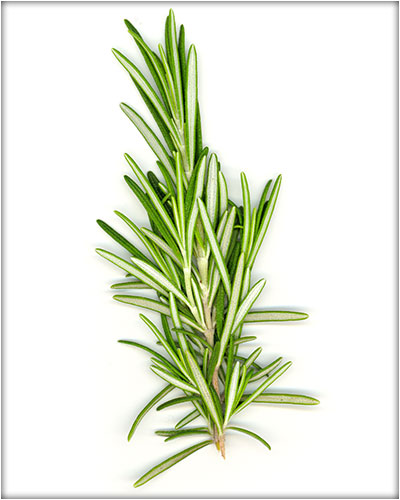Coconut Ice Cream
- 20 Apr - 26 Apr, 2024

Interesting facts
· The name of Rosemary originates from the Latin word rosmarinus, meaning “mist of the sea” or “dew of the sea”. The herb is a part of the mint family, together with basil, lavender, oregano and other herbs.
· Rosemary can be used for the preparation of salty and sweet dishes. Besides that, it is widely used in cosmetics and for aromatherapy, as it is rich in essential oil that has intense aroma and medicine.
· During the 16th century, people used burned rosemary to disinfect rooms.
· Rosemary is a symbol of loyalty and love. In certain parts of the world, bride, groom and their guests wear branches of rosemary during wedding ceremony.
· Rosemary is sometimes used in the funeral rituals. Placing rosemary into the hands of deceased and scattering of rosemary on the grave symbolise remembrance.
· Oil extracted from rosemary can induce poisoning when used in higher dose.
Health facts
· This herb, especially the flower tops, contains antibacterial and antioxidant rosmarinic acid, plus several essential oils such as cineol, camphene, borneol, bornyl acetate, and á-pinene that are known to have anti-inflammatory, anti-fungal, and antiseptic properties.
· The most interesting health benefits of rosemary includes its ability to boost memory, improve mood, relieve pain, protect the immune system, stimulate circulation, detoxify the body and prevent premature aging.
Study
Rosemary has been linked to stimulating cognitive activity in the elderly as well as those suffering from acute cognitive disorders, such as Alzheimer’s or dementia.
COMMENTS